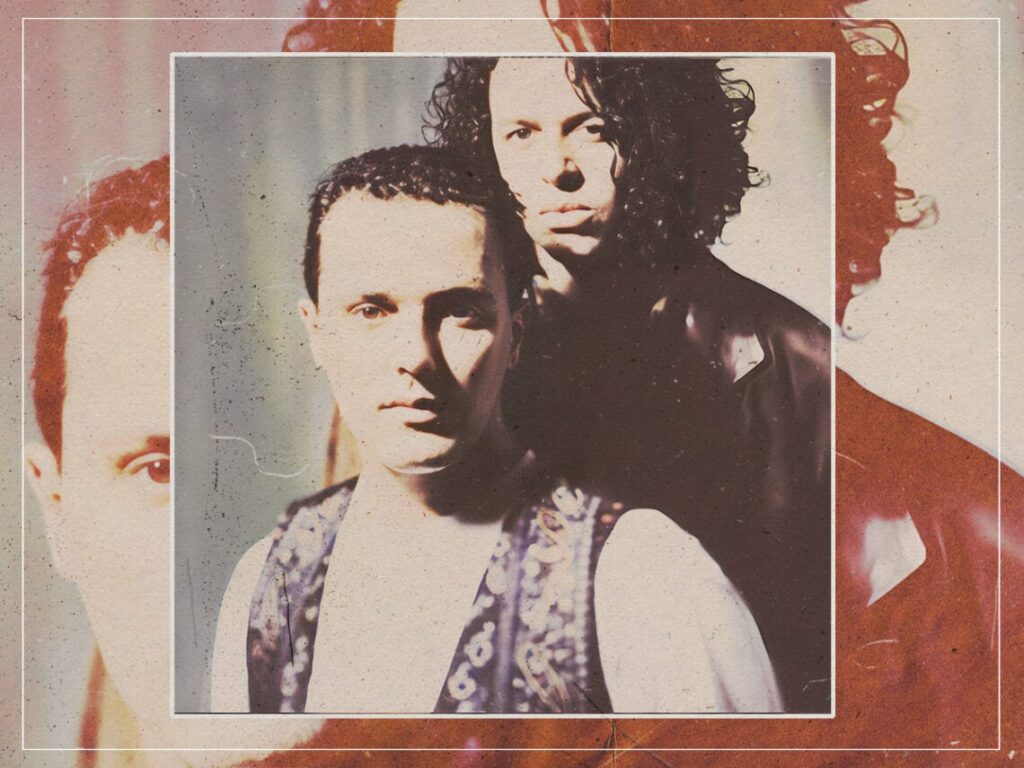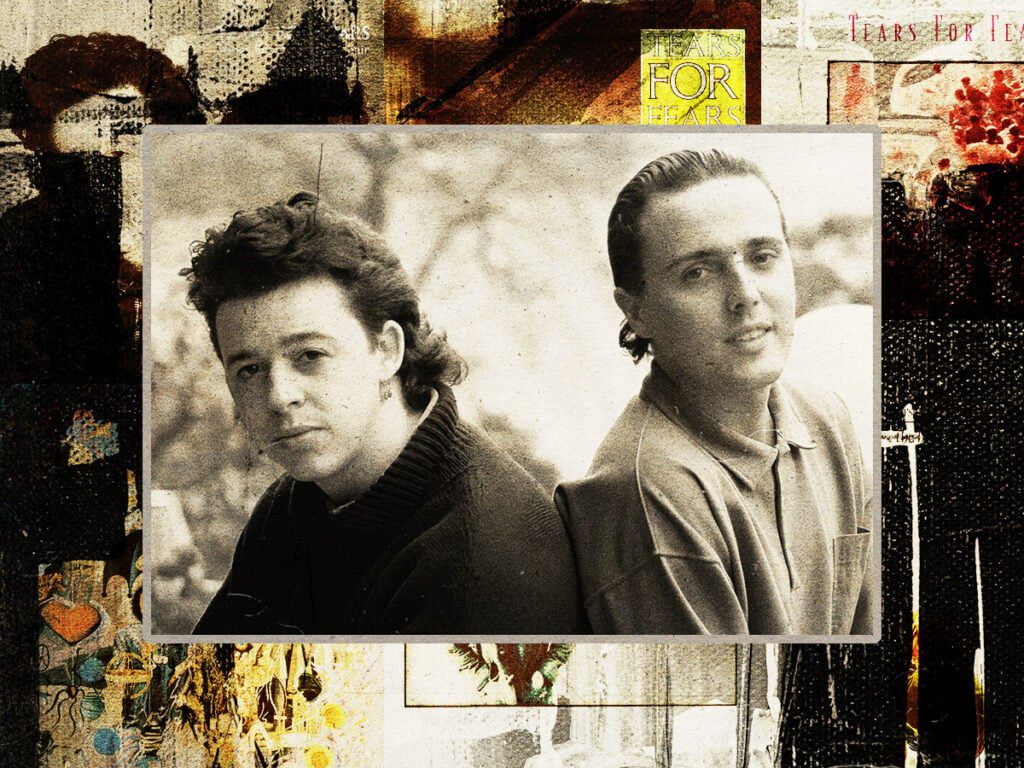‘Mad World’: Why does the Tears for Fears’ enduring masterpiece feel so uneasy?
 Posted On
Posted On
(Credits: Far Out / Mercury Records)
Depending on the generation you belong to, the song ‘Mad World’ likely dredges up different associations. For some, it might be the sinister, slow beats of the 2003 Christmas number one by Gary Jules, while for others, it’s the original Tears for Fears‘ journey into the psychological abyss. Regardless of the various cover versions and their subtle differences, each feels as unsettling as the next for reasons that aren’t always obvious.
Throughout the 1980s, Tears for Fears’ Roland Orzabal and Curt Smith bridged the gap between new wave and arena rock, resulting in songs that were both accessible and genuinely endearing from an artistic expressionist point of view. 1983’s debut, The Hurting, explored several deep and introspective themes, including alienation, trauma, isolation, childhood, and how each bleeds into one.
Growing up and throughout his life and career, Orzebal experienced mental health struggles like depression, which filtered into The Hurting via its emotionally charged content, reflecting Orzabal’s personal experiences with emotional pain. While curating the album, Orzebal also felt drawn to Arthur Janov, mainly his focus on reliving and expressing repressed childhood pain and how certain dream states can relieve fears of the most intense situations.
‘Mad World’ concentrated all these notions by bringing together Orzebal’s experiences growing up and his attitudes towards the human condition. “When I was 18, I dropped out of everything and couldn’t even be bothered to get out of bed. I poured all this into the song,” Orzebal told the Financial Times. The singer had an upbringing not too different from a lot of troubled teens but with pepperings of events that most of us can only hope never to experience.
After serving in the Second World War, Orzebal’s father was abusive towards his mother after being given electric shock treatment. Although his father died when Orzebal was just 17, he was absent for most of his childhood, which pushed him to resent him. This exhaustion from a broken family structure and mental depression permeates the song from the beginning line: “All around me are familiar faces, worn out places, worn-out faces.”

But Orzebal and Smith didn’t just tap into their own personal shortcomings in childhood for the song; their criticisms also reach the outside world and the disappointment that comes with the capitalist structure. The following line, “Bright and early for their daily races / Going nowhere, going nowhere” reaching into “And I find it kind of funny, I find it kind of sad…” reflecting their own attitudes towards the monotony of Bath, the city in which they grew up.
The observational tone of the song also aligns with how the pair viewed their experience in the city: not aggressive, not particularly angry or unsettled, just sad and disappointed. Despaired. As Orzebal put it: “That [line] came when I lived above a pizza restaurant in Bath and I could look out onto the centre of the city. Not that Bath is very mad – I should have called it ‘Bourgeois World’”.
It’s this precise lack of emotional contention that adds to its appeal—Orzebal and Smith aren’t inviting listeners to tap into a charged or anachronistic state of mind; everything they’re presenting is flattened by their own discouragement, amounting to a type of deflation that counteracts the upbeat nature of the accompanying arrangements.
Orzebal’s fixation with Janov seems to infiltrate the line, “The dreams in which I’m dying are the best I’ve ever had”, a complex statement about the ways dreaming of death and pain can sometimes help you to navigate what all of it actually means in waking life, even if it’s difficult to put into words, as suggested by the following line: “I find it hard to tell you ’cause I find it hard to take”.
Mostly, however, all of the subtle commentary on viewing the world through foreign eyes comes together with Orzebal’s childhood experiences and how he would often feel so isolated he could have been completely invisible. This is evident in the second and repeated verses: “Went to school and I was very nervous / No one knew me, no one knew me / Hello, teacher, tell me, what’s my lesson? / Look right through me, look right through me”.
Delving into existential angst, ‘Mad World’ has withstood the test of time due to its unfiltered presentation of disillusionment within the modern world. However, another layer comes with its endearing arrangements and melody—the themes may be dark, but they’re also universal and underscored by a catchy tune and endearing rhythm that transcends the ages.
[embedded content]
Related Topics


